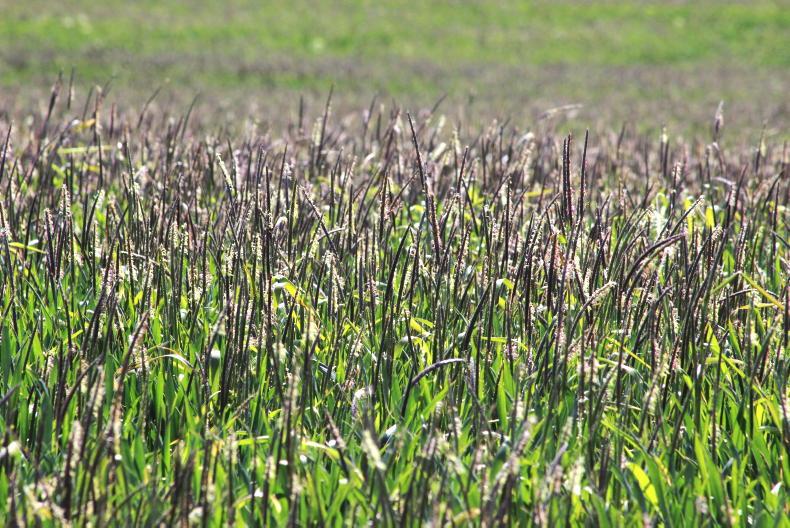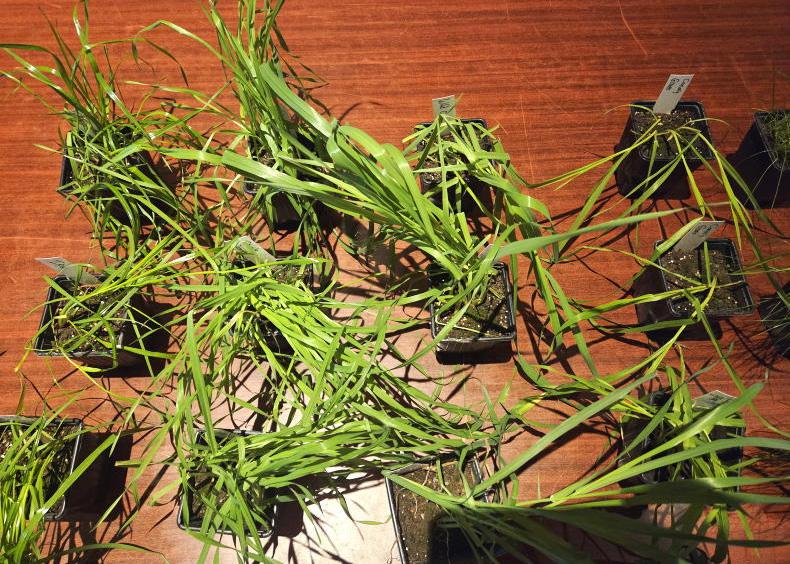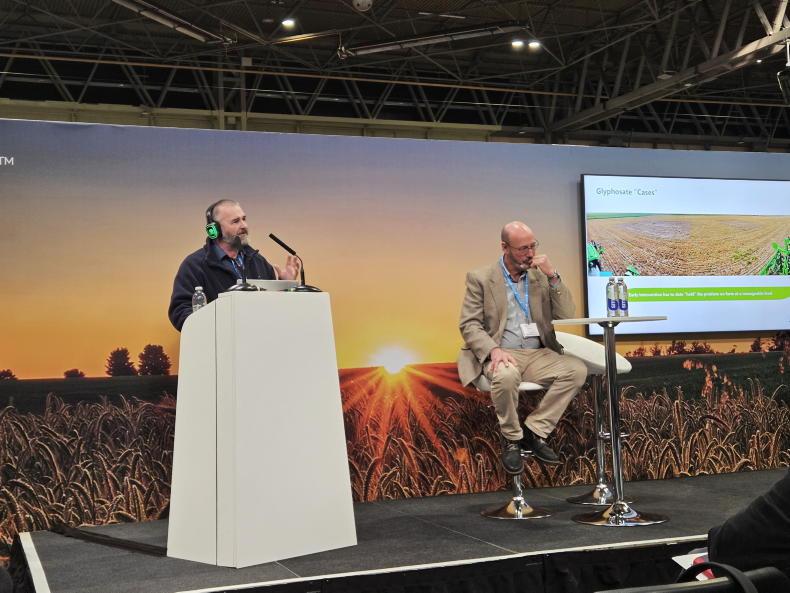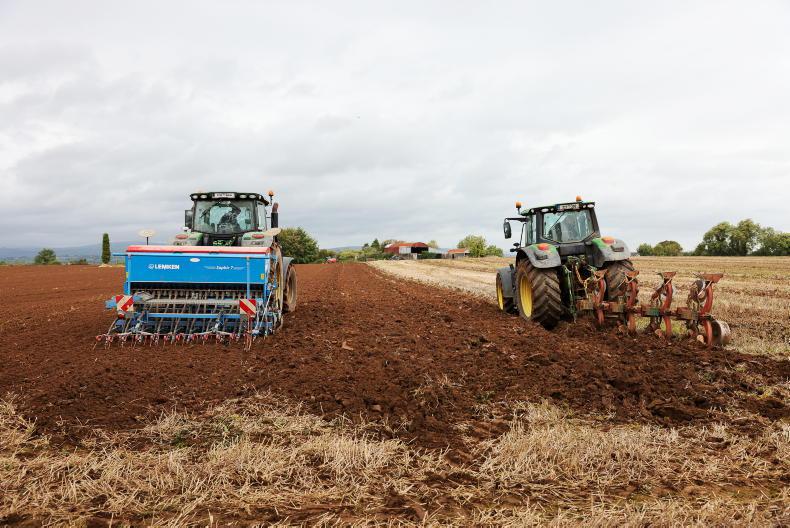The number of confirmed cases of blackgrass in Ireland’s tillage fields increased by 145% in 2020.
In figures compiled by Teagasc, 98 cases of the weed were identified last year, up from 40 in 2019. The actual number of blackgrass cases is likely to be significantly higher, however.
Blackgrass is an aggressive grassweed which can smother crops and cause significant yield reductions. If left unchecked, the weed can quickly render tillage farming unviable. Furthermore, herbicide resistant populations which were first confirmed in Britain have been identified in Ireland.
Listen to "Black Grass" on Spreaker.
Spread
The weed is now present in nearly all counties with a tillage industry in the Republic of Ireland. North Dublin and Cork are hotspots, with 20 and 18 confirmed cases in each respectively. Fifteen cases have been identified in Kildare, 11 in Meath and five in Tipperary.
Blackgrass seeds, which developed resistance to a number of herbicides in Britain, are thought to have entered the country via machinery and straw imports, and to a lesser degree, through cereal seed.
Since 1 January however, the rules for importing goods from Britain changed. As well as various checks, documents and notification requirements, machinery and seed will require a phytosanitary certificate to ensure they are free from harmful pests, diseases and soil. This will also help to reduce the risk of importing British blackgrass seeds.
However, straw imports will not require a phytosanitary certificate. Many in the tillage industry have called this a missed opportunity.
This week, the Irish Farmers Journal and Teagasc have launched a new series to highlight the challenge posed by blackgrass to Irish agriculture.










SHARING OPTIONS